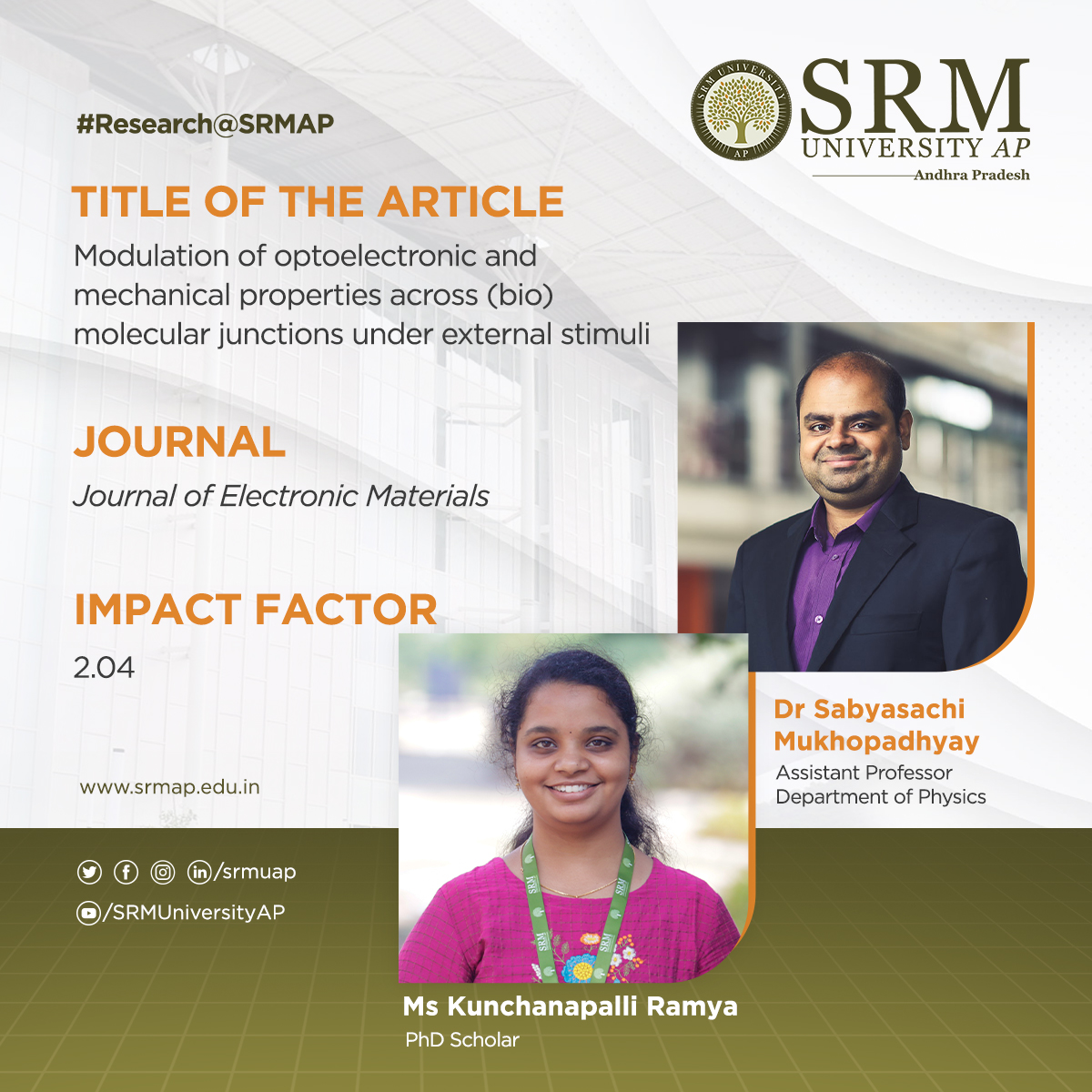 The latest research at the Department of Physics is investigating the charge transport across protein-based molecular junctions. Researchers envision fabricating bio- FETs which is useful in electronic devices as an alternative to Si- technology. Assistant Professor Dr Sabyasachi Mukhopadhyay and his PhD scholar Kunchanapalli Ramya published their paper Modulation of optoelectronic and mechanical properties across (bio) molecular junctions under external stimuli in the journal of Electronic Materials with an impact factor 2.04.
The latest research at the Department of Physics is investigating the charge transport across protein-based molecular junctions. Researchers envision fabricating bio- FETs which is useful in electronic devices as an alternative to Si- technology. Assistant Professor Dr Sabyasachi Mukhopadhyay and his PhD scholar Kunchanapalli Ramya published their paper Modulation of optoelectronic and mechanical properties across (bio) molecular junctions under external stimuli in the journal of Electronic Materials with an impact factor 2.04.
Abstract
Molecular junctions are formed by wedging molecules between two metal electrodes. Besides the conventional parameters of the metal-molecule-metal junction, such as the work function of electrodes and the molecules’ energy gap, molecule-electrode electronic coupling strength also plays a vital role in modulating the electronic properties of the molecular junction under external stimuli. We have also calculated several transport parameters which play a crucial role in finding the origin of conductance modulation under the external stimuli. We could find that before particular humidity conditions, the modulation in the conductance is due to the variation in coupling strength, which is due to the modulation in the electrostatic environment of retinal chromophores of protein by changing the structure of protein under various external stimuli.
Researchers have explored the external stimuli (illumination, force, and humidity conditions) effect on charge transport across bacteriorhodopsin-based molecular junctions. Their future research plans include bio- FET fabrication with the protein reported and studying the transistor characteristics across it.

